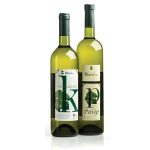July 4, 2018 – Continuing our look at the foreigners trying to make a difference in Croatia, meet Carmen Tomasic, who swapped the luxury gourmet scene in Sydney to help bring an additional touch of class to the island of Korcula.
1. From the bright lights of the luxury Sydney dining scene to the island of Korcula – introduce yourself and tell us how you ended up on Korcula this summer.
I fell in love with Korcula from the moment I came. It’s hard to explain, but being here my life just seemed to make more sense. All the places and people I’d only heard about in stories from my dad for 17 years, were suddenly real to me and I understood them and my dad and family better for it.
I loved coming to our village, people who I’d never met before welcoming me and knowing everything about me as though I’d actually been there my whole life, I just felt a real sense of belonging. Coming from a big city where life is fast and people are often quite detached, it was a really beautiful experience and it just felt like the way life should be. Close communities, endless natural beauty, and people who are deeply in touch with nature and the things that actually do matter.
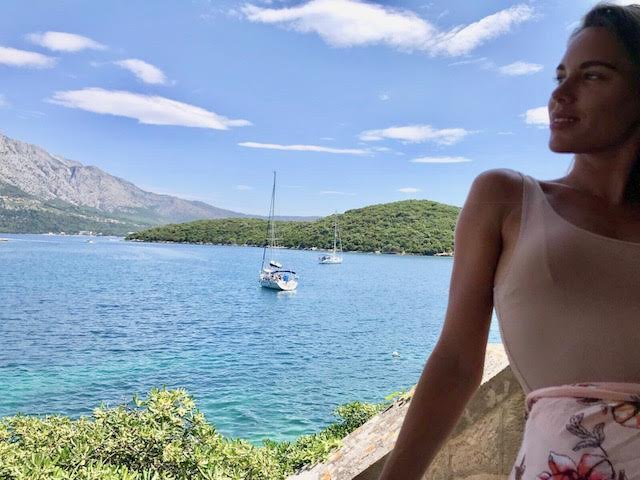
I’ve been coming every year ever since that- 13 years now! The only thing that stopped me staying was being able to find the right job (and also I had to learn the language.…still a work in progress but I can manage now!) Then last year I was fortunate to meet Pero, the owner of this group- and I really admired his vision and goals for Korcula and knew it was exactly the project I’d been waiting for.
For me it’s important that I feel purpose in my work beyond just the business and pay cheque and so, my reason for being here is simply that I love this country and place and that I really like to think I can somehow make a positive impact here; bringing my experience and perspective from Sydney, mixed with an understanding of the local ways.
Croatia has so much to offer and yet so many people are giving up on it and leaving, and if they go, so too does the culture and all the great things about Croatia. So I really hope that with Pero and the team, we can maybe change that even in some small way, and create new opportunities and hope for people here. It’s a long-term goal, but hopefully we’ll see some positive effects in the years to come.
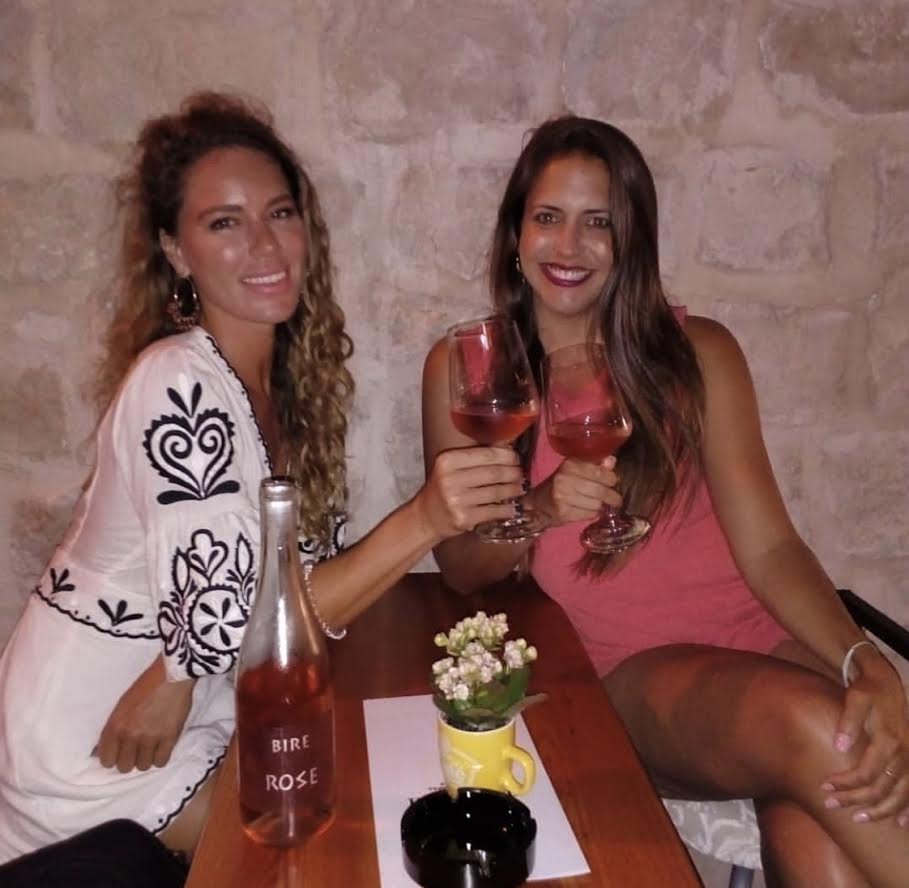
2. The opening of the Moro Beach Club at Stupe last summer raised the level of quality for Korcula, and your company has now recently opened two more high-end hospitality outlets. Tell us more about them.
Basically, with the two new venues we’ve now got all bases covered so far as dining styles.
Vrnik Arts Club opened a few weeks ago and offers traditional Dalmatian style food. The restaurant is set in a refurbished school house, complete with a shop and art gallery (which is currently exhibiting some works by renowned artist Charles Billich!)
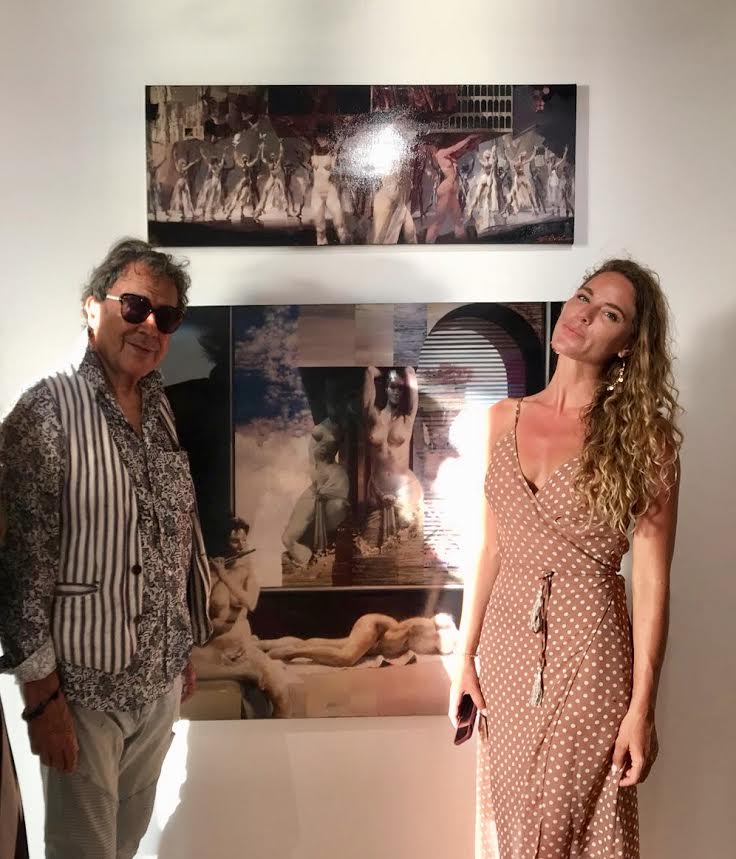
Like Moro, this venue is on a little island about ten minutes by speedboat from Korcula city. There are no cars there at all, but a small population of locals live there for the summer months. It’s the perfect place to relax.
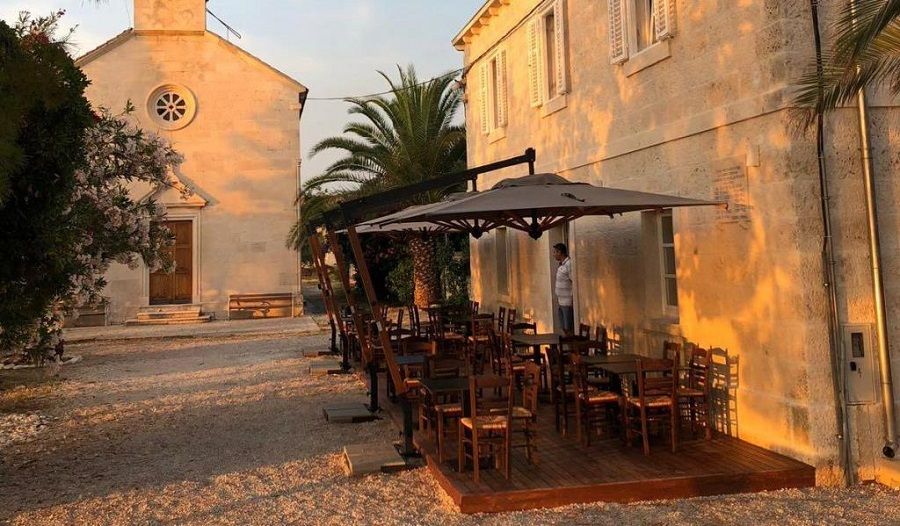
De Canavellis is our fine dining offering in the old city of Korcula; headed up by executive chef Matija Bogdan, (who previously worked at Michelin star restaurant, Ledbury in London). The menu showcases local produce where possible, but in a more modern interpretation and setting.
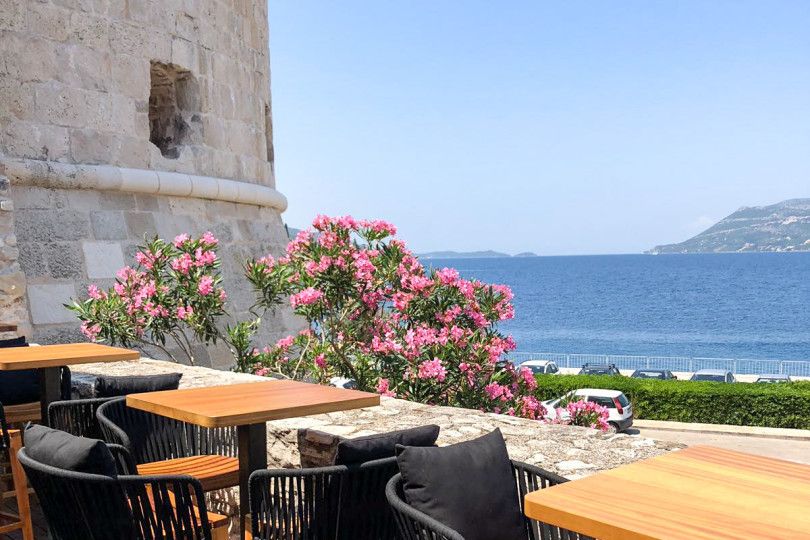
Moro then continues to offer our guests a refined take on dalmatian food in a relaxed setting. You can also enjoy great cocktails on the beach to the sound of our resident DJ Nadezda Dimitrijevic.
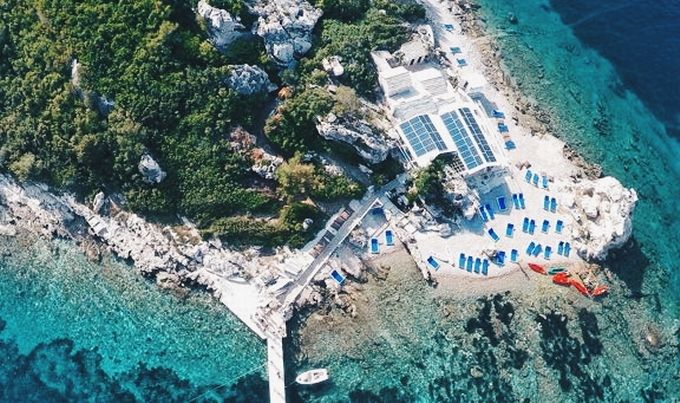
3. Coming from the Sydney gourmet scene, how would you assess the quality of Croatian gastronomy? What are its competitive advantages, and where would you like to see improvements?
Well, it has to be taken in context, the reality is the scene in Croatia (the islands particularly) survive off tourism, so the question is really about how we best capture this market, rather than how do we try and recreate urban dining in this setting.
I resist comparing it to Sydney so far as diversity of offerings etc for the simple reason that big cities have a consistent population. People in them seek variety in dining as a relief from their daily grind.
Here, most tourists are only staying for a night or two. What the majority of them are seeking is a real Croatian experience- but they expect the freshest, highest quality, local ingredients- and that’s the key to success in this scene.
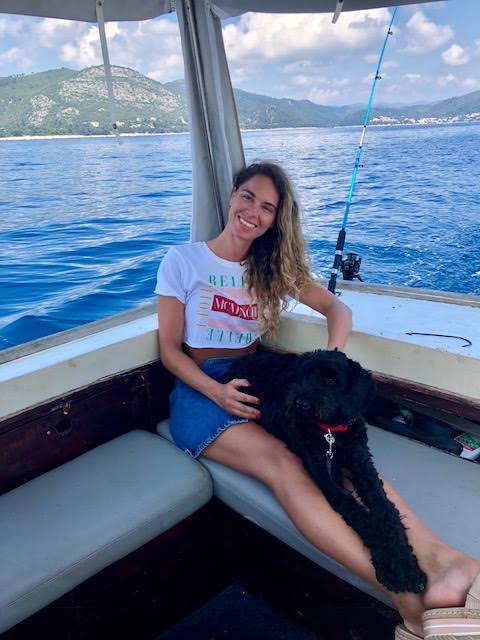
Fresh produce is something this country has in abundance, and there’s a long history of traditions with specific foods and methods of farming and fishing etc, so that’s a huge asset.
I think one problem we have is that the majority of restaurants try to be everything for everyone- instead of being specialists for a particular thing. Every restaurant needs to forge its own identity within the broad offering of Croatian cuisine.
That’s the immediate improvement I’d like to see here- smaller, more focused menus in restaurants and less of the menus which cover everything from pizza to burgers to meat to fish and pasta and gourmet salads all in one place.
The other fall out currently, is more about how we utilise these food offerings. I feel from how we communicate what Croatia has to offer, through to how we ‘package’ and present it, is where there’s a lot of room to improve.
The goal would be to lengthen the tourist season and make Croatia more known for gastronomic and agro-tourism, as well as for its historical value- shifting away from just the ‘summer sun and sea’ reputation it has.
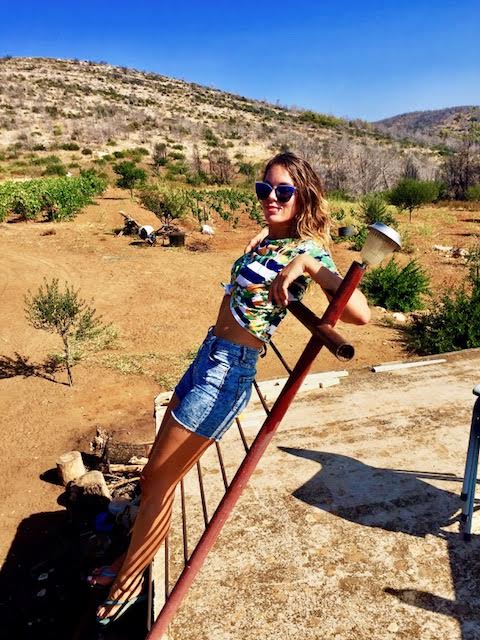
For me, although there are definitely lots of options for where we could take the food scene itself, I think the bigger issue is the quality of venues here, the overall art of hospitality here, rather than just the focus on gastronomy.
There are a lot of places where you can get good Croatian food, but there aren’t a lot of venues that are actually appealing or that stand out. They don’t have the right atmosphere, music, furniture, lighting, design- they don’t grab you as you walk past and sometimes the hospitality itself isn’t as warm and engaging as it should be.
People need to FEEL good in a venue, not just eat well. It’s a scientific fact after all, that our sense of taste is also influenced by psychological factors such as mood.
I think part of the reason Moro was such as success was the fact the venue itself is just INCREDIBLE. From the furnishings to the setting itself, the DJ etc- it all just makes for a real experience, with great food on top of that. That’s what we need more of in Croatia.
From there, we can start experimenting more with the gastronomy itself too- but I think the key to the scene growing in general, is more of a focus on the overall guest experience, rather than simply on the food and drink. If we go too hard in overextending our gastronomy offering, before we’ve built the foundations required to present this food, serve it well, and to engage the right audience- then we risk having it backfire on us.
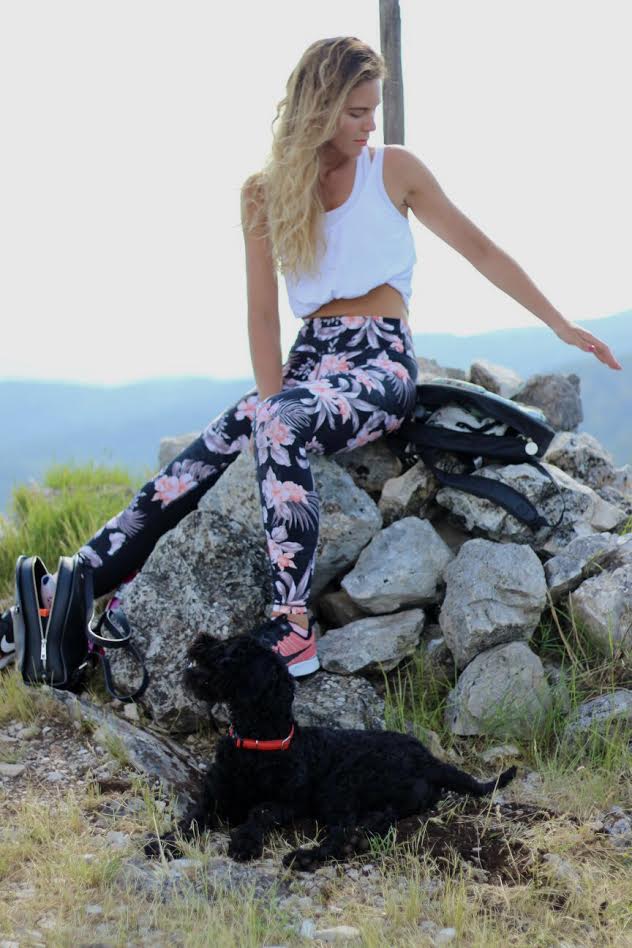
We need to remember that our guests who come from across the world aren’t going to pay thousands of dollars to fly to Croatia just to eat well, when they can eat well in every other city in the world too. They’re going to come here because of the overall experience of eating well- the way we connect with them, host them and share our culture with them- the things they can’t just recreate in their own cities.
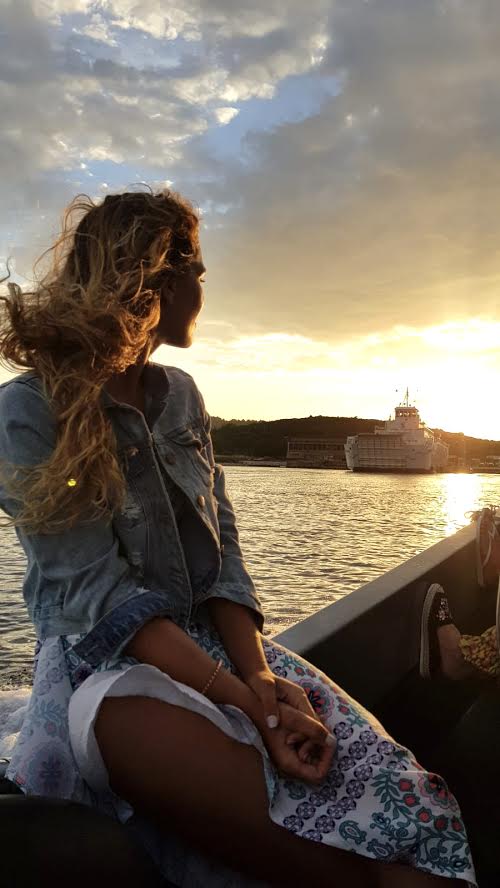
4. You are obviously looking to target the high-end tourist. Tell us a little about the philosophy of the three outlets you are running.
By Croatian standards, yes our prices are more premium than others, but in context of what you’d pay in places like Sydney and London, it’s very affordable and especially in consideration of what the offering is. So in that sense, it really is approachable for most tourists travelling here and we’re certainly not pretentious- everyone is welcome and valued as a guest.
All the venues share the common theme of wanting to showcase local produce as much as possible, but the difference is the style in which it’s done, from more traditional, through to more modern and fine dining.
The venues are also very different in terms of how they feel, with Vrnik being more casual and relaxed and very true to the Dalmatian heritage, while Moro is a bit more of a festive place for dining and drinks and De Canavellis being more refined in ambience and offering.
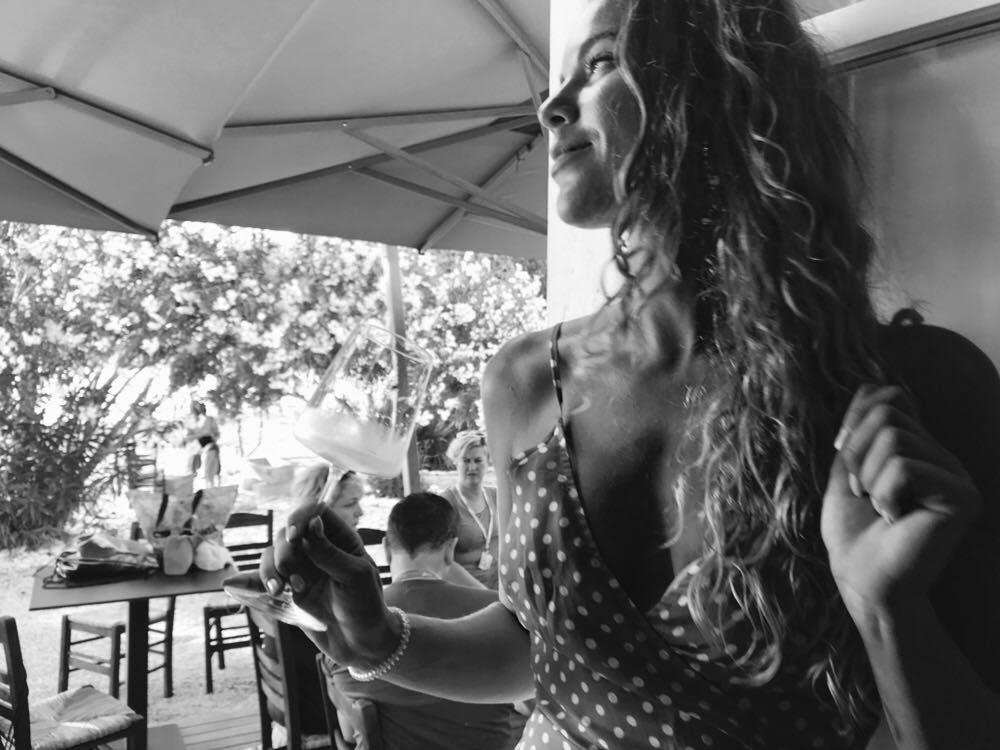
5. You have been coming to the island a few months a year for some time. How is the experience of working compared to chilling as a tourist?
I love it! It certainly has its challenges, and it’s not easy, but that’s what makes it interesting. I like feeling as though I’m really a part of the community and having a sense of purpose, while also getting a better understanding of how life here really is.
6. You are now working at the very top of the Korculan gourmet scene, but you were once a barmaid in a local cafe in Korcula. How was that for an experience?
In a nutshell- it was character building!! It was a lot of fun, a lot of hard work, but something I’m really glad I did. I was responsible for every aspect of the venue- because it was so small and there were only an additional one or two workers on friday nights.
So while in Sydney my job would be just to waitress for example, in Croatia I was responsible for ordering stock, cleaning the venue each day- bathrooms and all, making drinks, counting the cash, controlling the music and any issues.
Maybe in part it was because of this experience that I did excel into a GM position so quickly in Sydney. Within 6 months of my return to Australia after working in the bar in Croatia, I’d been promoted from assistant restaurant manager, to restaurant manager and then venue GM soon after. I was the youngest and first ever female to have that position at that particular venue. So I guess my Croatian barmaid stint helped improve my appreciation for all the various roles in hospitality, which enabled me to be a better manager and leader.
It also served as a great way to improve my Croatian language and a veeeerrry interesting insight into the local ways!!
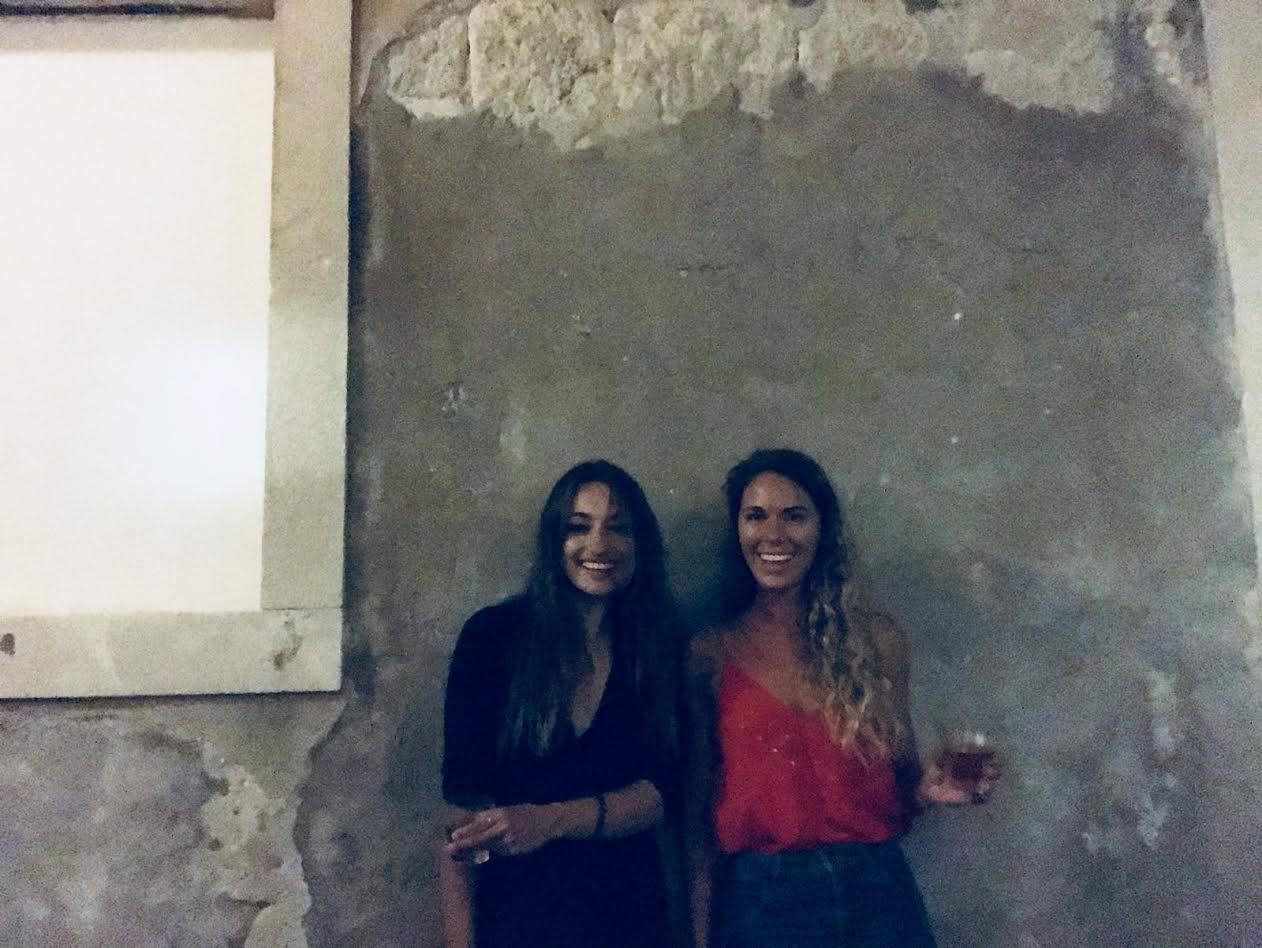
7. Tell us about the direction of Korcula as a tourism destination. Are you happy the way things are going? Which key markets is Korcula trying to attract.
I definitely think we’re on the right track. There are some really special venues in Korcula in addition to ours. There are some local people who have branched out to adapt to new styles and offerings (such as wine bars like Baric, Croatian tapas bars like Marendin, plus some great venues and some that have really established themselves for a unique specialty such as Maha which does traditional Dalmatian really well and Pensatore, which has focused on it’s specialty of homemade gnocchi. Silk (Asian cuisine) is also a great additional as an approachable alternative to Croatian food.
Where I think we can improve- is that we still need some more refined offerings, one or two sexy, cool lounge bars, late night venues with quality bar food offerings, within comfortable venues, great ambience, where people can graze and enjoy a few drinks until late without crazy dance music or without having to order a big meal. There’s nowhere that has that really comfortable cocktail lounge vibe (as a reference- Hemmesphere in Sydney which I managed- absolutely nailed this concept), and right now we do have quite a mature market of tourists, so its important that we cater to them too.
We’re also really lacking in weatherproof venues- the city almost shuts down when there’s rain or really strong winds. So we need to really think about that a bit better too.
8. Your favourite place on Korcula and why.
Tough question!!! The whole place is too beautiful!!! It really depends on my mood. If I feel like being around people or not, or whether I feel like being lazy or active. Some of my favourite beaches are Prizba, Pupnatska Luka and Lumbarda (the sandy beach). Nothing compares to Moro of course, it’s pretty rare anywhere in the world to find a private island to swim at and enjoy great food and drink- it’s a really special place. Vrnik is incredible for the peace and relaxation there too.
The mountain Kom is amazing for a good walk and breathtaking views across the whole island. Mountain bike riding near Brna is the best- there’s some great bush tracks along the coastline and the views are a nice backdrop to work out to.
And I’m always happy wherever I am if I’m on the sea- you can’t beat getting in a little speedboat and exploring the bays.
I also love my dad’s village- as it’s got a lot of soul and feels like a time warp, very peaceful and charming.



